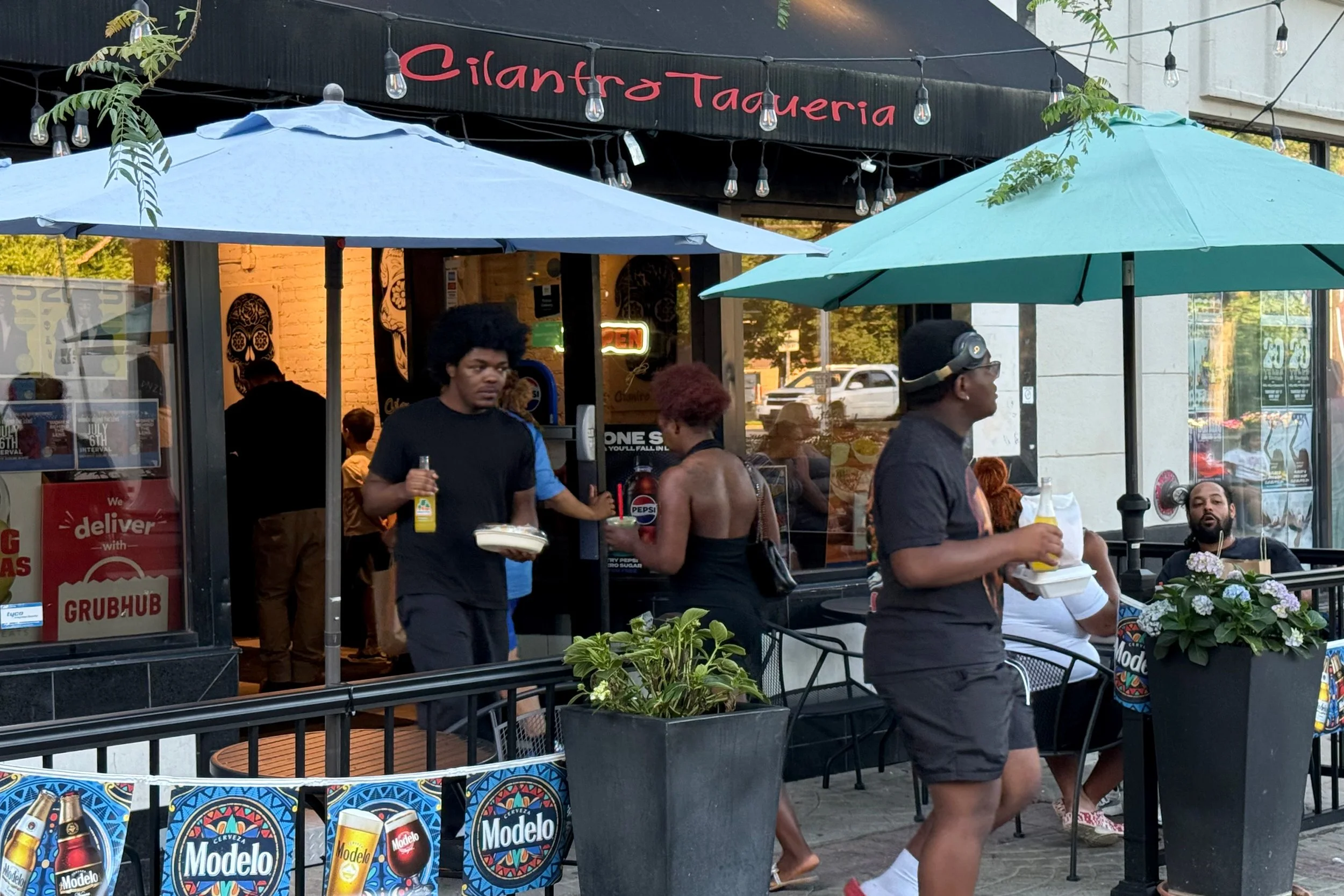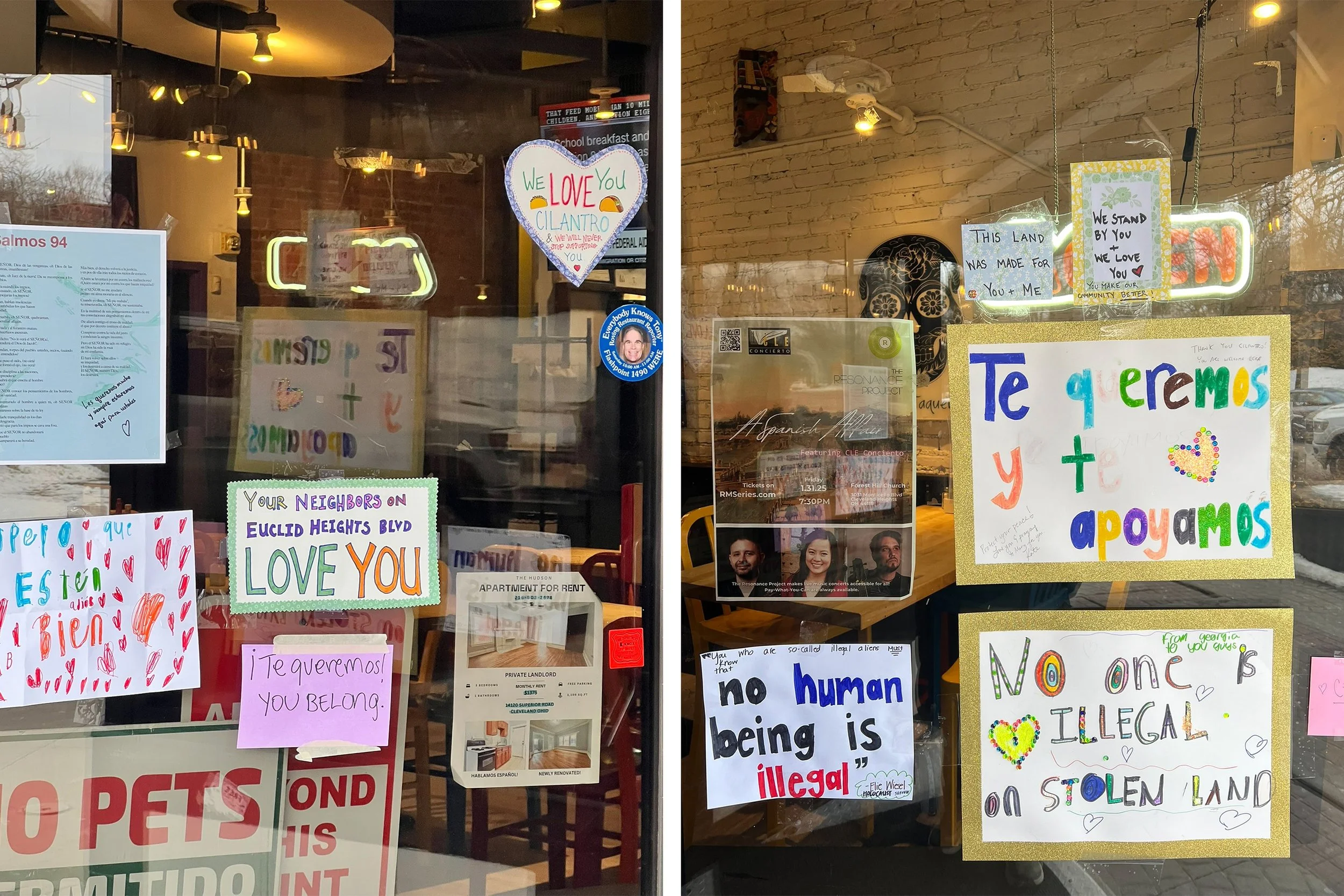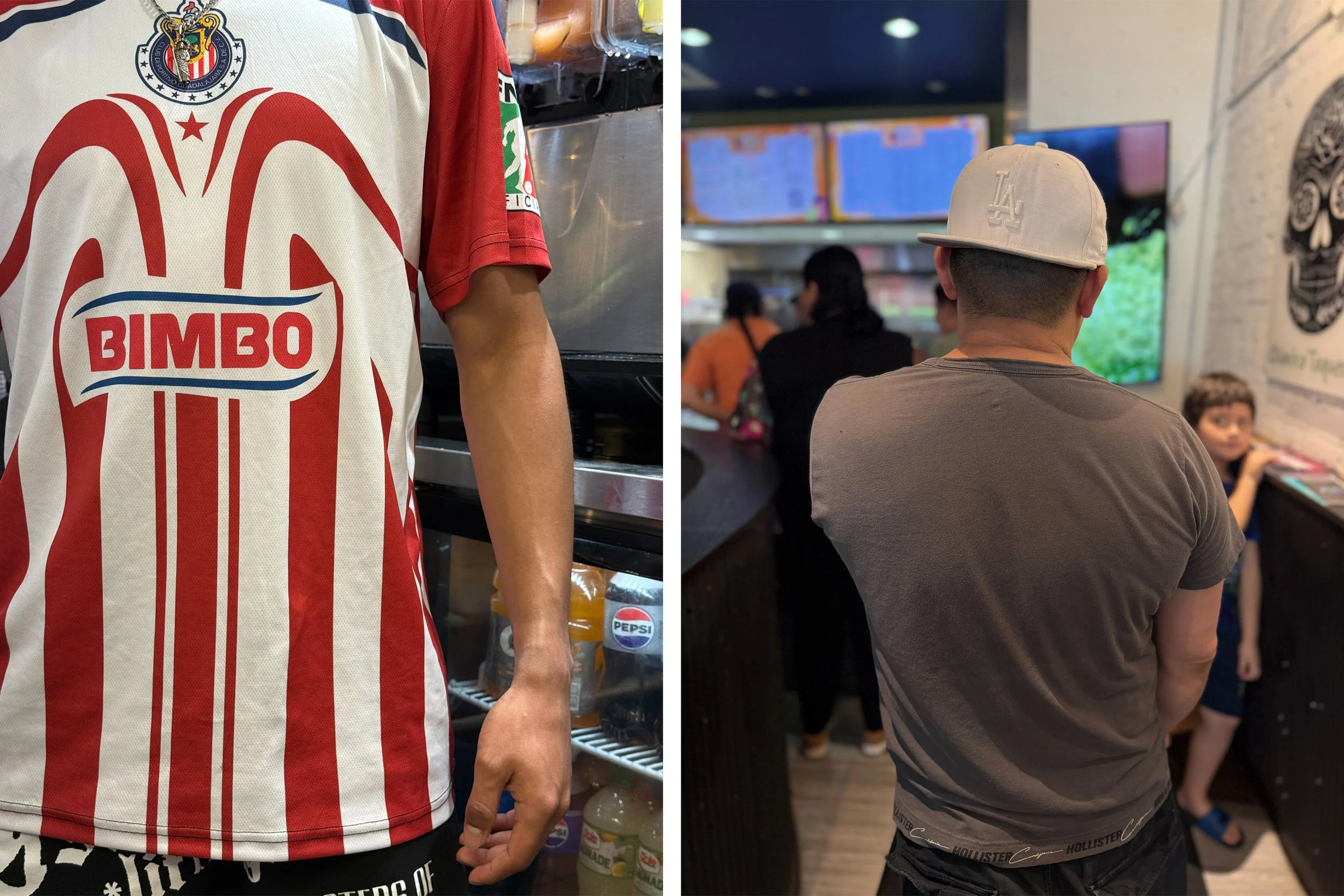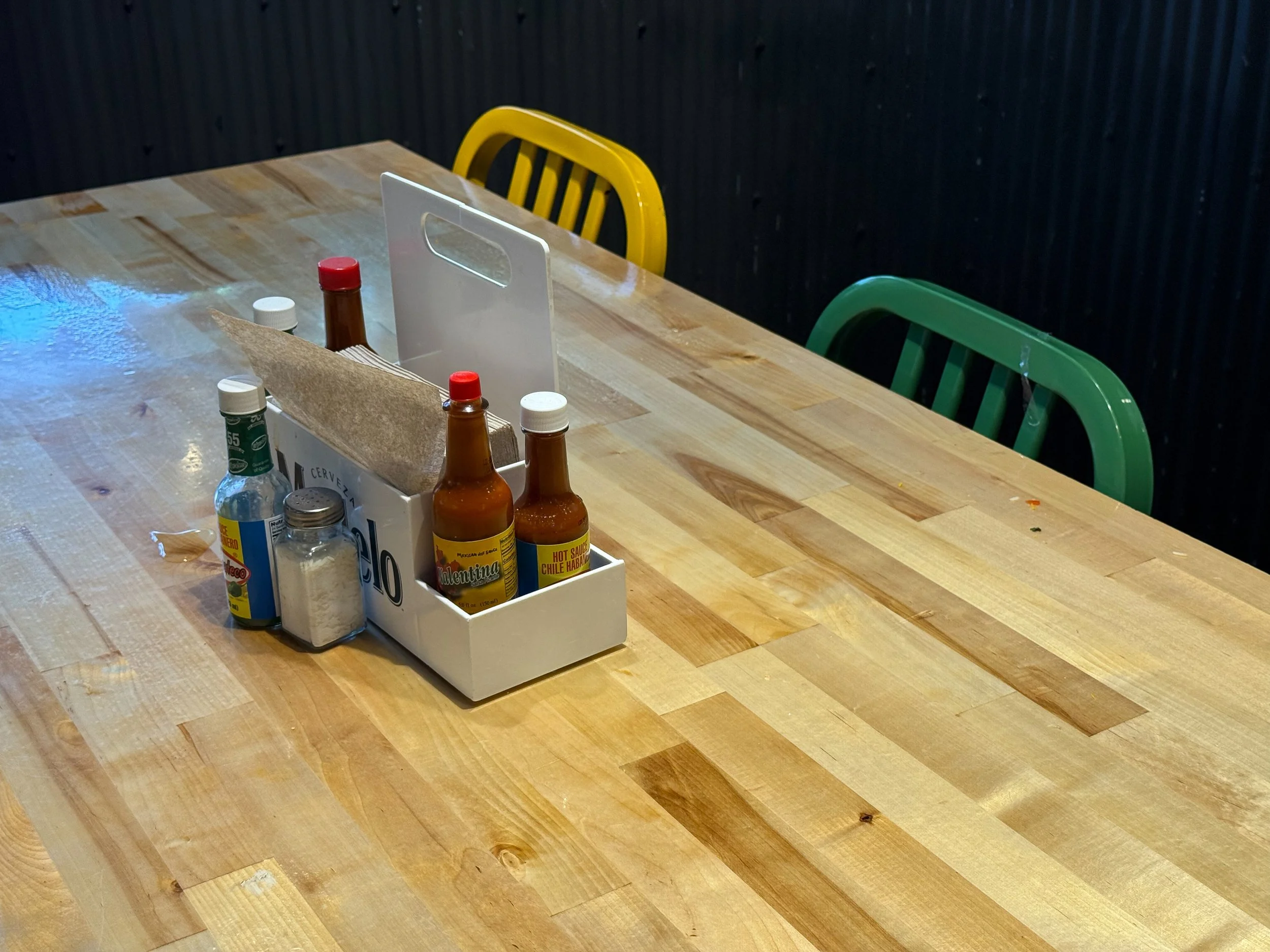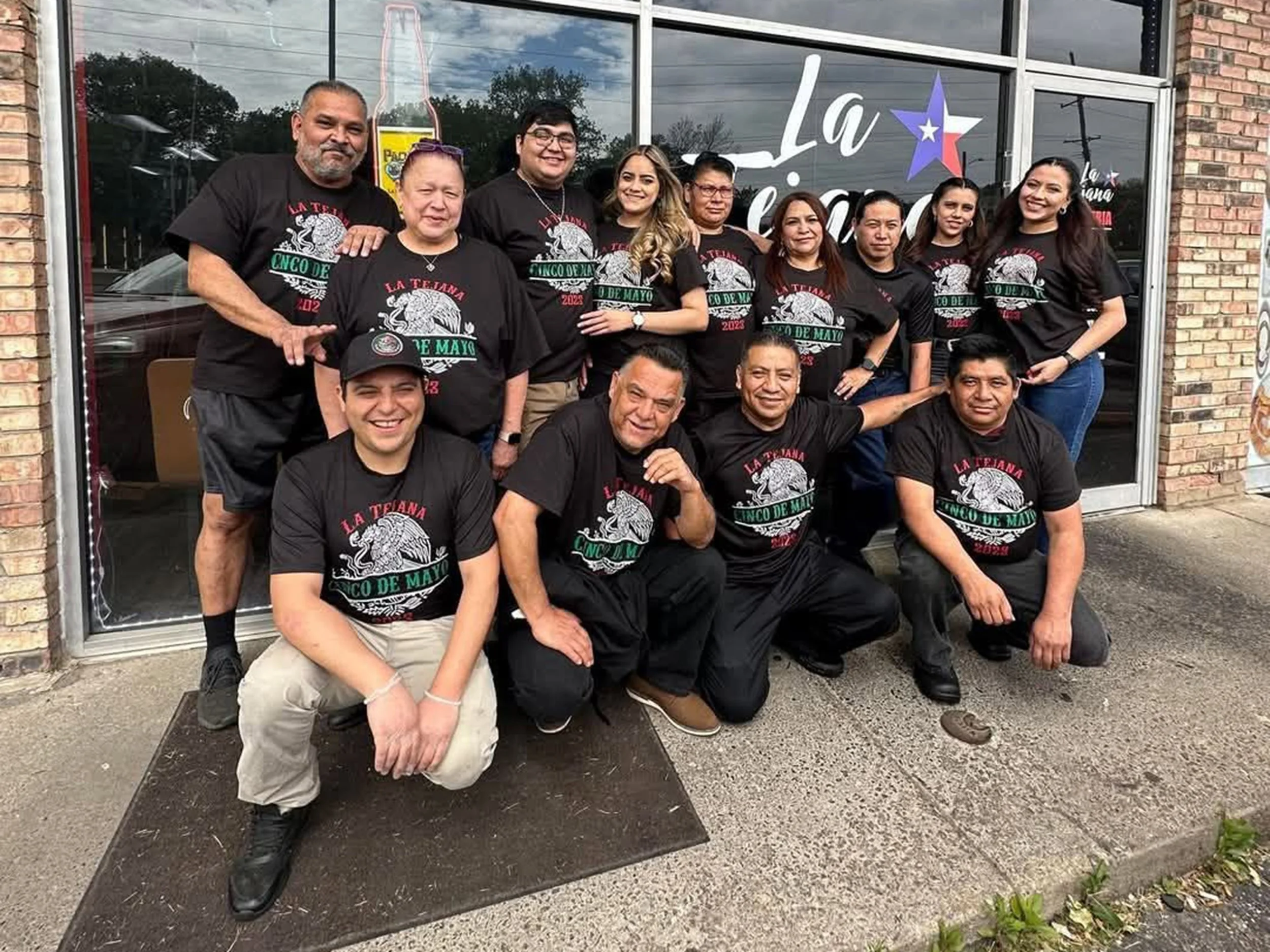Feeding the spirit, preserving the culture in the Midwest
Cilantro Taqueria in Cleveland was the target of an ICE raid in January. The community rallied to support the restaurant. Photo by Jimena Horta Ballesteros for palabra
Latino-owned and immigrant-owned businesses have been targeted by ICE. Despite this, Mexican restaurants continue to foster community and culture.
Tacos, burritos, and enchiladas. Foods that were once reserved for consumption in Mexican households are now available to all. Guacamole and tequila are present at tailgates and quinceñeros alike. Mexican food, and with it Mexican culture, has fully entered Americans’ lives and palates.
Mexican restaurants serve as bridges between cultures, introducing patrons to flavors, spices, and textures that are uniquely Mexican. However, these institutions have been under attack, targeted by ICE raids, leaving many fearful and on edge about their futures.
A region that unexpectedly seems to hold its own in the number of Mexican restaurants is the Midwest. In Cook County alone in Illinois, there are over 1,500 Mexican restaurants. Cities like Detroit, Cleveland, and Indianapolis are Mexican restaurant hubs in their own right.
Back in January, Immigration and Customs Enforcement agents entered Cilantro Taqueria, a Mexican restaurant in Cleveland. They arrested six employees, leaving the community and patrons shocked.
Raúl Carrillo and Rey Galindo are the founders of Cilantro Taqueria, which they started in 2019 in Cleveland. The restaurant business runs in the family. Rey and Sandro’s grandmother operated her own restaurant, Luchita’s, which was open for more than four decades before closing in 2022 due to the COVID-19 pandemic.
“The restaurant has always been in our bloodlines,” Sandro said.
He said the mission of the business, which has six locations, is to provide customers with fresh ingredients and authentic flavors.
Cilantro Taqueria’s mission is to offer fresh ingredients and authentic flavors that remind customers of home. Photos by Jimena Horta Ballesteros for palabra
“I feel like we’re slowly expanding the palate of Cleveland and what it means to try different foods from around the world,” Sandro said.
Sandro was born in Mexico City, and said the raid on the restaurant was a hit to all of them. However, they felt supported and loved by the community.
“It made news all over the city, and the community just came out in support of us. They really rallied around us,” he told palabra.
At publication time, Sandro said they were able to get back five of their employees after they had been detained for 12 days in the Geauga County Safety Center, an ICE detention center in Chardon, Ohio, about 30 miles northeast of Cleveland.
“A lot of hard work by a lot of people made that happen,” he said. “Whenever we fell down or that this was a tough road, tough fight, we just saw the notes and the flowers from little kids. The community helped us continue to want to get our guy out. They inspire us to keep going.”
Sandro said not all responses and reactions were positive, however.
“The day they released our five guys, we got a couple of phone calls, people calling and hanging up saying, ‘F you, go back to Mexico,’” he said. “There was that, and there were Facebook messages like that, too.”
Even so, Sandro said the positives outweigh the negatives, and patrons still came out to support them and their business.
“At the same time, January is every restaurant’s slowest month, and it was a record January and February for us. Sales were great, so many people came out, and the tips people left helped support our staff. We’re very lucky. We’re grateful.”
Messages of support posted on Cilantro Taqueria windows after an ICE raid. Photos by Jimena Horta Ballesteros for palabra
According to the Pew Research Center, 85% of U.S. counties have at least one Mexican restaurant. The largest sector of Mexican restaurants is in Los Angeles County, with the Southwest region of the U.S. having the most on a regional level.
Mexicantown is a neighborhood in Southwest Detroit where a large number of Mexican immigrants have settled, dating back to the 1920s. Today, the area is home to an abundance of Mexican restaurants, markets, and bakeries.
Delia Fernández-Jones is an associate professor of history and Chicano studies at Michigan State University. Her work looks at Latiné communities in Michigan and the Midwest, especially migration.
“I really enjoy talking about migration, but also communities (and) place making, how people make a place feel like home,” Fernández-Jones said. “How do they make it a place where they can thrive and not just barely survive?”
Fernández-Jones said the key to prosperity for a lot of communities revolves around leisure spaces. Environments such as churches, festivals, and restaurants foster these connections that are able to expand beyond existence and lead to putting down roots.
“It’s just kind of a theme where Latinos and Latiné folks in the Midwest, and probably nationwide, are consistently billed as ‘where are you really from?’ Not necessarily as newcomers, but not necessarily as people who have over a hundred years of history in a particular place.”
Customers visit Cilantro Taqueria for authentic Mexican food that brings a taste of home to Cleveland. Photos by Jimena Horta Ballesteros for palabra
Fernández-Jones cites the assertion of Latinos being a newer population to the American diaspora as a “convenient myth.”
“We come to understand assimilation as this thing that we all go through, that European groups who’ve come here have stayed here, have learned the language, lost their cultural markers, have been accepted into mainstream society, and to essentially become white.”
Fernández-Jones said a large number of Latinos are the antithesis of this notion, with many not falling within this assimilation trajectory. The continued acquisition of the Spanish language, as well as the preservation of traditions and culture, makes the forced assimilation “unsuccessful,” asserts Fernández-Jones.
“Instead of seeing their culture, their food, their language, their customs as liabilities, many people found those to be their strengths.”
In terms of the history of Latinos in the American food service industry, Fernández-Jones said there is a persistent notion that Latinos occupy the “back of the house” sector.
“I think that a lot of what we see, even in the food industry, is labor that is invisible to eyes,” she said. “We don’t want to see the people who are cooking our food, but we do want our food, and we want it done right and in a particular way.”
Latinos often preserve their culture after migrating, said Delia Fernández-Jones, an associate professor at Michigan State University. “Instead of seeing their culture, their food, their language, their customs as liabilities, many people found those to be their strengths.” Photo by Jimena Horta Ballesteros for palabra
However, when Latinos or Latino food may seem front and center, Fernández-Jones said there is a tendency for themes of misrepresentation and cultural appropriation to present themselves via cuisine.
“I think it is really hard for folks to kind of reconcile, ‘I really like this trendy place, but I really don’t want Mexicans living in my neighborhood or dating my kids or being their roommates.’ This allows people to feel like they’re engaging with culture without engaging with people.”
Some businesses across the United States have participated in the #UnDiaSinInmigrantes campaign (A Day Without Immigrants), a movement where immigrant-run businesses closed, children did not go to school, and others did not report to their jobs. This year it was held on February 3rd.
This movement was meant to protest the Trump administration and its actions to target immigrants with ICE raids and anti-immigrant policies. February 3rd is also significant as the day in 1870 that the Fifteenth Amendment to the U.S. Constitution was ratified, guaranteeing voting rights regardless of race, and building upon the Fourteenth Amendment that codified “birthright citizenship,” and which President Trump has been trying to eliminate.
On Feb. 3, La Malinche in Chicago was one of these businesses to close its doors for a day. A Mexican coffee and tea house, La Malinche is located in the largely Latino Pilsen neighborhood and offers a variety of products, many which showcase the traditional flavors of Mexico. In a video uploaded to Instagram, co-owner Héctor Aguirre announced the business would be closed that day. “This is for supporting all our people, all our community. For people who have been saying terrible things about immigrants, we want to show them that we are united, we are together, we are strong, and immigrants make America great.”
Héctor and his wife Yvette are both immigrants from Mexico City and took over the business in 2021 to save it from closing. Héctor said they debated about closing for the day, but in the end, he said they had to look at principle rather than monetary value.
Héctor Aguirre and his wife, Yvette, owners of La Malinche in Chicago’s Pilsen neighborhood. Photo courtesy of Héctor Aguirre
“It was a tough decision … but in the end we decided to think less about our income and think more of our community,” Héctor told palabra. “We are immigrants … and these policies would affect us. The biggest effect is fear from the people at the beginning of this administration, the fears, and some slow business.”
He said the closure actually spurred more business the following day, with customers eager to support them as a sign of solidarity.
“After we participated in this movement closing that day, people came the next day and told us, ‘I saw that you closed yesterday, so that’s why I’m coming here today to support you,’” Héctor said.
He added that he is interpreting the fear and uncertainty in the current political climate as a call to action.
Support the voices of independent journalists.
|
“What we could ask our representative today is to defend us against all these policies. We gotta stick together. We gotta ask them. We have been to some protests fighting for equality, fighting for immigration rights.”
According to Héctor, even the name of the business holds significance and reflects the couple’s mission of engaging with the community. La Malinche was an enslaved Native Nahua woman (birth name unknown) who acted as the primary interpreter for Hernán Cortés during the Spanish conquest of the Aztec Empire. Héctor mentions that the historic figure is controversial in Mexico, some claiming she was a traitor to her people. However, the original owners of La Malinche in the Windy City explained to Héctor and Yvette that La Malinche represents the bridge between two cultures.
“All the people, all of us who have a mixed race, all of us who speak Spanish, who have Spanish heritage and Indigenous heritage, we owe something to her because she was the mother of the first mestizos. That’s part of what we focus on, diversity and welcoming everyone,” Héctor said.
Héctor Aguirre hopes to create a welcoming space at La Malinche. For him and his wife, the restaurant represents a bridge between cultures. Photo courtesy of Héctor Aguirre
He looks at the interactions with customers as opportunities to learn more about others as well as share his own culture.
“We let them share with us, and we share with them our culture,” he said.
La Tejana, a Mexican business with a tienda (store), carnicería (butcher shop), taquería, and licorería (liquor store) located in St. Ann, Missouri, right outside of St. Louis, also participated in the #UnDiaSinInmigrantes campaign. Owners Antonio and Brenda García took it a step further and closed everything for a full week.
“In support of our employees and fellow Latino-owned businesses, we will be temporarily closed from February 11th to 18th,” the business posted to its Facebook page on Feb. 5.
“It was very hard to do because that’s the only way,” Antonio said. “A day without immigrants is nothing. Anybody could do it. But a week takes courage, and that’s when the impact will show. Once we say we're going to do something, we’re going to go for 100.”
The Garcías continued to pay their workers during the week they were closed.
Workers stand outside La Tejana in St. Ann, Missouri. The restaurant shared this photo in a post about closing for the #UnDiaSinInmigrantes campaign. Photo courtesy of La Tejana
“I’m very proud of that and proud of my wife that we know how to manage our money now,” Antonio said. “Of course, we lost a lot of money that week; it’s a whole week, but the peace of mind that we had that week doesn’t compare to the money.”
Above all, Antonio said being a good member of society is most important to him. He said he believes if he puts out good in the world, it will come back to find him.
“I want them (people) to know that if I see their rights being stepped on, I am going to fight for them. I’m going to fight for them as an American citizen, for the freedom they should have. So I hope they will do the same for us.”
Sandro, Héctor, and Antonio all said they have plans for the future, but right now they are focused on continuing to invest in their communities.
“I’m with my people, my raza, my community,” Antonio said.
Aztec artwork decorates the walls of Cilantro Taqueria. Photos by Jimena Horta Ballesteros for palabra
—
Alyssa Cruz is the social media manager for palabra and is a recent graduate of Ohio University, with degrees in journalism and Spanish, and was the editor-in-chief of The Post, an independent, student-run newspaper. She has worked for three years as the Fellowship Coordinator for Altavoz Lab, a mentorship program for community journalists, and completed a multimedia storytelling internship in Ecuador. Last summer, she was an intern for CBS’ 60 Minutes in New York City. @alyssa_danccruz
Jimena Horta Ballesteros is a Mexican-Caribbean photographer and a graduate in communications and filmmaking at the Universidad Anáhuac in Mexico, along with the Master's program in Photography and Artistic Projects from the European Festival PhotoEspaña. Her work was recently part of the exhibition Kili’ich Chuuyo’ob | Bordado Maya Ritual by the Great Museum of the Mayan World in Mérida, Yucatán, México, and in addition to Mexico, her work has been exhibited in Canada, Chile, Spain, and the United States. @jimenah_
Patricia Guadalupe, raised in Puerto Rico, is a bilingual multimedia journalist based in Washington, D.C., and is the interim managing editor of palabra. She has been covering the capital for both English- and Spanish-language media outlets since the mid-1990s and previously worked as a reporter in New York City. She’s been an editor at Hispanic Link News Service, a reporter at WTOP Radio (CBS Washington affiliate), a contributing reporter for CBS Radio network, and has written for NBC News.com and Latino Magazine, among others. She is a graduate of Michigan State University and has a Master’s degree from the Graduate School of Political Management at George Washington University. She is the former president of the Washington, D.C., chapter of NAHJ and is an adjunct professor at American University in the nation’s capital and the Washington semester program of Florida International University. @PatriciagDC

